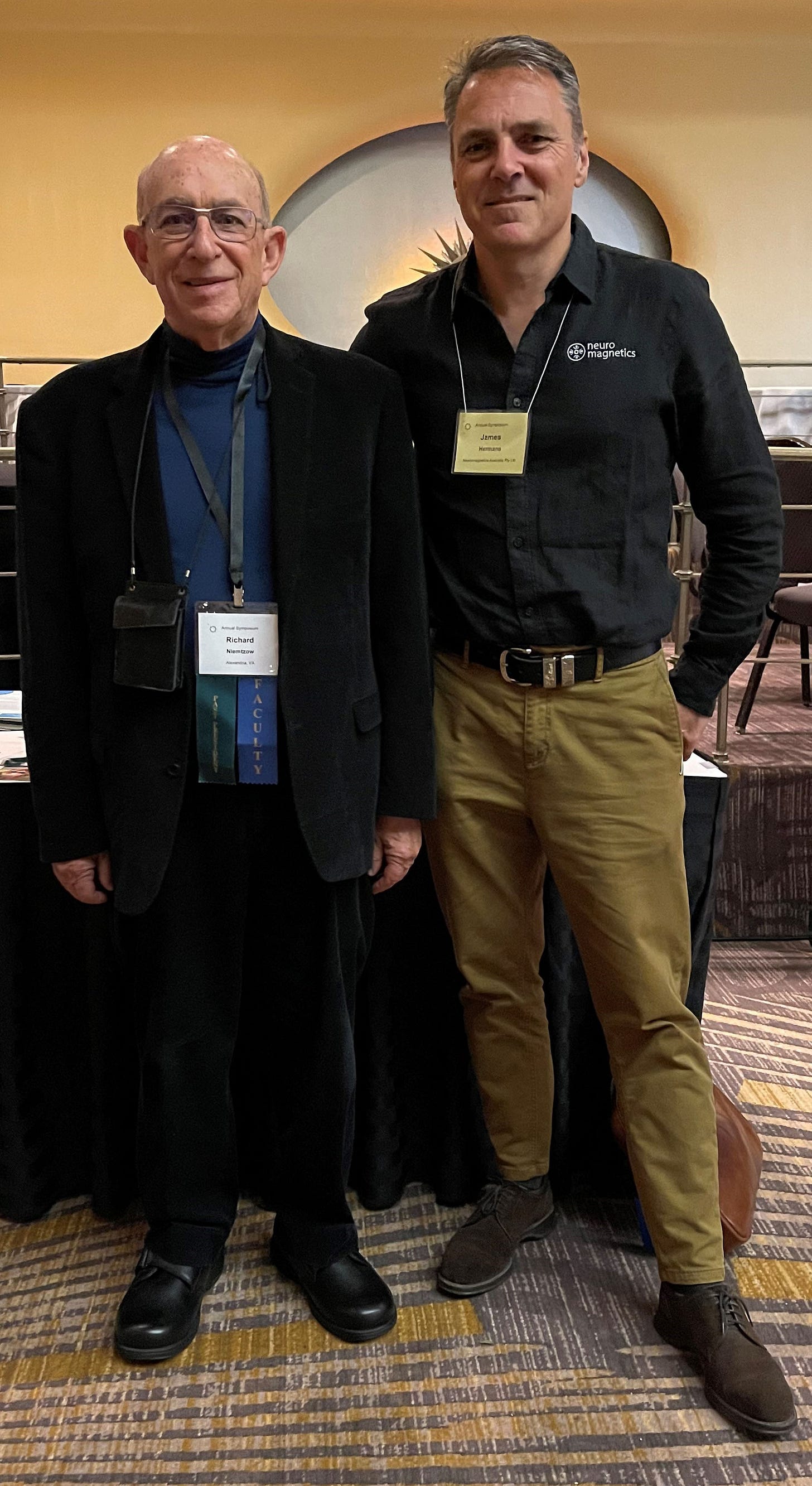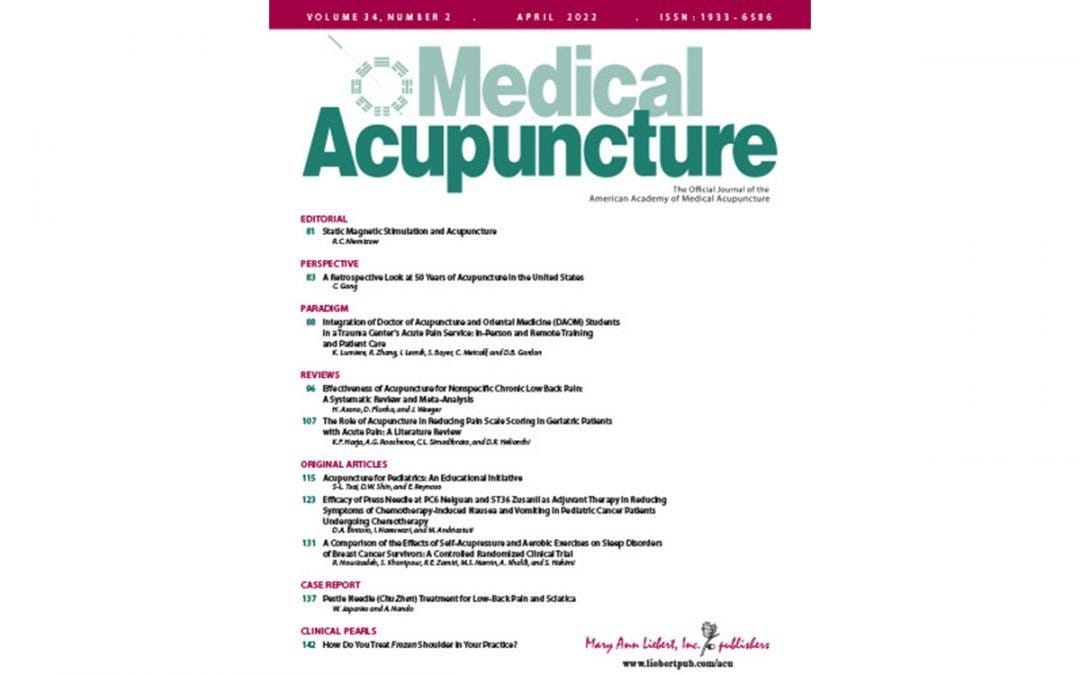A Life of Innovation: Dr. Niemtzow’s Contributions to Pain Relief
Hello Everyone!
Honoring the Life and Work of Dr. Richard Niemtzow
This week, we pause to remember and celebrate the life of Dr. Richard Niemtzow, MD, PhD—a visionary physician, acupuncturist, editor-in-chief, retired U.S. Air Force colonel, and a friend to many in the field of integrative medicine.
Dr. Niemtzow was best known for pioneering Battlefield Acupuncture, a technique that has benefited millions around the globe. Yet, his contributions extended far beyond acupuncture. He was a forward-thinking researcher who explored novel approaches to pain management, including the potential role of static magnetic fields in clinical applications.
In 2017, he posed a question in his editorial for Medical Acupuncture:
"Acupuncture and Magnets: Is There a Clinical Role?"
Read the full article here
Intrigued by this inquiry, I reached out to Dr. Niemtzow, offering him access to the best available medical magnets to help explore the question further. His response was open-minded and genuinely curious. At the time, he admitted:
“I would like to say that we have performed a clinical trial to test this hypothesis, but we have not done so.”
A few years later, in 2021, I received an email from him stating:
“I really like using the magnets for my patients.”
This marked the beginning of a cordial and professional relationship. When international travel resumed post-pandemic, I made my way to the Medical Acupuncture Symposium in the U.S. to meet Dr. Niemtzow in person.

His enthusiasm for static magnetic therapy continued to grow, and in 2022, he published a fascinating case study in Medical Acupuncture:
"Static Magnetic Stimulation and Acupuncture"
Read the case study here
The study detailed a remarkable case in which their nurse manager, suffering from long-term chronic knee pain, experienced relief through a novel treatment approach. Dr. Niemtzow's thinking was unconventional—his protocol differed significantly from how we typically recommend using Q Magnets for knee pain. Yet, the results spoke for themselves.
With a PhD focused on cell membranes, he provided unique insights into the mechanisms of static magnetic therapy. He referenced the work of Kadir et al., who highlighted the critical role of resting membrane potential—even in non-excitable (non-nerve) cells—suggesting an expanded understanding of how static magnets might influence cellular function.
Then, in 2023, he co-authored a case series expanding on his previous work:
"Acupuncture and Static Multipolar Magnets: An Emerging Attraction?"
Read the case series here
Dr. Niemtzow’s exploration of static magnetic therapy followed a logical progression:
First, he asked the question—Could magnets have a clinical role?
Then, he published a case study—Demonstrating real-world application.
Next, he contributed to a case series—Expanding the evidence base.
Finally, a clinical trial was on the horizon—The next step in validating this approach.
Though his untimely passing leaves this important work at a loose end, his legacy will live on. Research, like all great endeavors, is a relay—one generation asks the questions, another seeks the answers. The baton will be passed, and the exploration of static magnetic therapy will continue in his honour.
Dr. Niemtzow’s impact on medicine—through Battlefield Acupuncture, his editorial leadership, and his willingness to push boundaries—has left an indelible mark. We are grateful for his contributions and will do our part to ensure his pioneering work is remembered and built upon.
Rest in peace, Dr. Niemtzow. Your work continues.
Until next time, stay curious and stay well,
James Hermans and the Q Magnets Team
Feature Article
Static Magnetic Stimulation and Acupuncture
During my acupuncture career, I have stimulated acupuncture points—whether on the body or ear—with needles, moxa, light, infrared, laser, electricity, and, recently, with magnets. In practically every case, a benefit was perceived by the patient.
Acupuncture and Magnets: Is There a Clinical Role?
Do magnets have a role in stimulating acupuncture points? A colleague, who is a no-nonsense trauma surgeon, was impressed that magnets placed on Battlefield Acupuncture (BFA) points did reduce pain.



